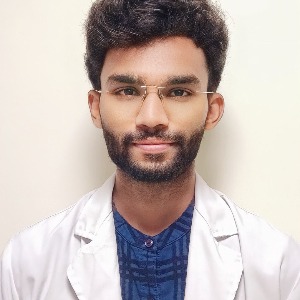Title : An integrative approach in achieving physical, mental and spiritual wellness
Abstract:
As global health systems face rising rates of chronic lifestyle disorders and mental health challenges, there is a growing demand and need for integrative approaches that enhance holistic wellness and supportive comprehensive care. The World Health Organization (WHO) recognizes traditional systems of medicine including Ayurveda as vital components of universal health coverage and has emphasized their role in achieving the Sustainable Development Goals (SDGs).In the evolving landscape of global healthcare, there is a growing recognition of the need for integrative approaches that address not only physical health, but also mental and spiritual well-being. Traditional Ayurvedic Medicine, Yoga, Meditation and Indian Vedic science offer a time-tested, evidence-informed framework for holistic wellness, aligning closely with the principles of preventive and personalized medicine.This lecture explores how Ayurveda and Indian Vedic science including four vedas, Ramayana, Mahabharata, Bhagvadgeeta, Puranas offer a multidimensional approach to health, encompassing the physical (Sharira), mental (Manas), and spiritual (Atma) dimensions of human well-being. Central principles such as Dosha balance, Agni (digestive/metabolic function), Prakriti-based personalization, and Ojas (immunity and vitality) will be discussed in relation to current medical concerns.Particular focus will be given to the clinical relevance of these systems in the management of non-communicable diseases (NCDs) such as Cancer, Cardiovasular Diseases, hypertension, diabetes, obesity, neurodegenerative diseases like Parkinson’s, Alzheimer's etc as well as stress, anxiety, and depression, which are increasingly affecting healthcare providers and patients alike. For a matter of fact 70%+ global deaths account to NCDs.Evidence-informed practices including yoga, Ayurvedic nutrition, daily and seasonal routines (Dinacharya and Ritucharya), meditation, and Vedic lifestyle interventions (e.g., mantra chanting, mindfulness) will be examined for their therapeutic potential and applicability in modern clinical settings.The session aims to empower healthcare professionals with integrative tools from India’s traditional knowledge systems to enhance patient care, foster resilience, and promote sustainable wellness.By integrating these traditional Indian systems with contemporary health paradigms, the lecture aims to equip healthcare professionals with practical tools and philosophical insights for promoting sustainable wellness in their patients and communities.




